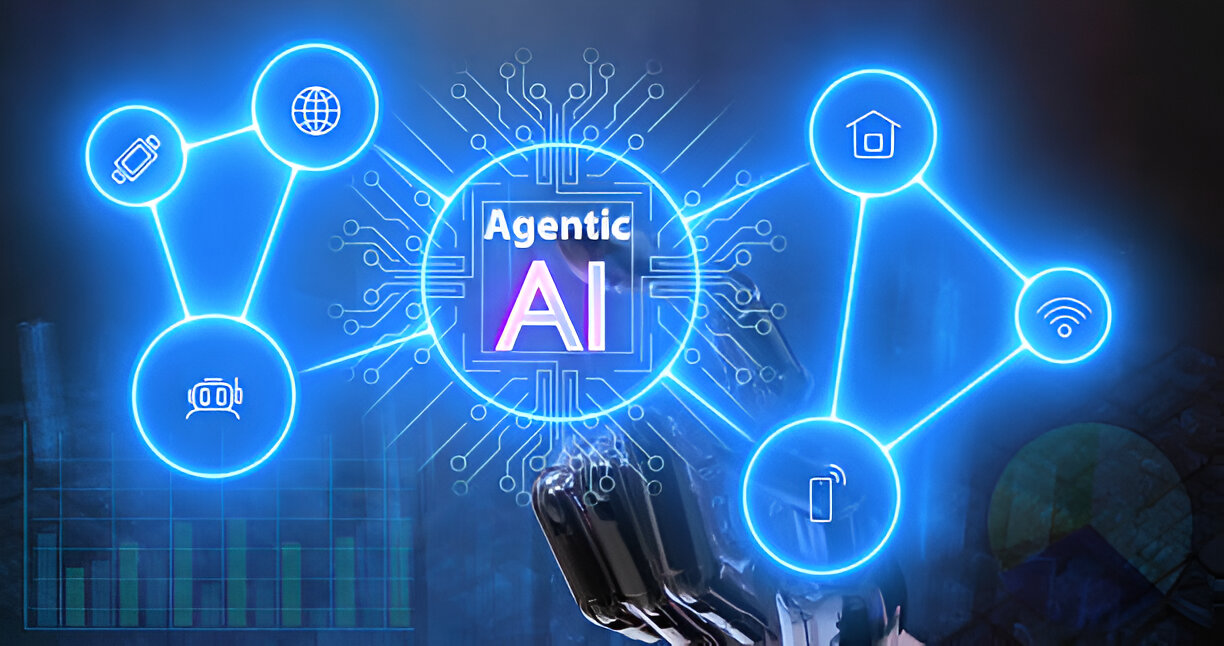In the fast-evolving landscape of technology, adaptive AI use cases have emerged as game-changers for organizations across various sectors. Adaptive AI refers to intelligent systems that learn and evolve based on real-time data, allowing them to make informed decisions and improve processes continuously. Are you leveraging adaptive AI in your strategy? Companies that resist adopting these innovative technologies risk falling behind in efficiency, customer satisfaction, and overall competitiveness.
Businesses without adaptive AI may encounter several pain points, including inefficient workflows, slower response times, and inadequate personalization in customer interactions. This article will explore how different industries are deploying adaptive AI to overcome these challenges and enhance their operations.
Real-World Adaptive AI Examples across Industries
Adaptive AI Use Cases in Retail
The retail industry has witnessed a drastic transformation through adaptive AI. Retailers are leveraging personalized shopping experiences to enhance customer satisfaction and boost sales.
- Personalized Shopping Experiences: By analyzing customer behavior, preferences, and purchase history, adaptive AI can recommend products tailored to individual consumers. For instance, e-commerce giants like Amazon use adaptive AI algorithms to suggest items based on previous searches and purchases, resulting in considerable increases in cross-selling and upselling.
- AI-Driven Inventory Management: Adaptive AI also plays a pivotal role in managing inventory levels. Algorithms can analyze buying patterns and seasonal trends to predict demand accurately. For example, Walmart uses adaptive AI to optimize inventory levels, reducing costs associated with overstocking and stockouts. Tools like IBM’s Watson are being utilized for enhanced supply chain analytics, allowing retailers to respond quickly to changes in market conditions.
Adaptive AI Use Cases in Healthcare
Healthcare is another sector where adaptive AI can improve patient outcomes significantly. The technology is being harnessed for both diagnostics and operational efficiency.
- Patient Diagnostics and Treatment Plans: In fields like radiology, adaptive AI systems can analyze medical images and provide early detection of diseases such as cancer with higher accuracy than human radiologists. Technologies like Zebra Medical Vision are evolving rapidly, capable of identifying anomalies in scans and assisting in diagnosis.
- Reduced Wait Times through AI Scheduling: AI-driven scheduling systems can adapt to patient flow and appointment cancellations, optimizing the scheduling of healthcare providers. For example, some hospitals are utilizing adaptive AI to predict patient loads, enabling them to allocate resources more efficiently and minimize waiting times in emergency rooms.
The Role of Software Development Company in Adaptive AI
Adaptive AI implementation often involves collaboration with a specialized software development company. These companies are crucial in developing and deploying AI solutions tailored to specific business needs.
Custom Solutions by Software Development Company
Software development companies are creating customized AI solutions that cater to various business objectives.
- Tailored AI Solutions: Companies can approach software development firms to build unique applications that leverage adaptive AI. For instance, a logistics company might require an adaptive AI system to optimize routing, while a marketing firm may seek AI for personalized advertising strategies.
- Case Studies of Successful Deployments: A prime example is the work done by companies like Palantir Technologies. Their software aids businesses in making data-driven decisions, which has proven invaluable in sectors like finance and healthcare, where precise data analysis is critical.
Collaborating with Software Development Company
Collaborative efforts with a software development company are essential for effective AI integration.
- Essential Partnerships: Working closely with developers allows businesses to better understand their unique challenges and develop solutions that are genuinely adaptive.
- Benefits of Expert Developers: Leveraging expert developers leads to smoother deployment processes, higher quality output, and ongoing support that can adapt as business needs change. This partnership approach ensures that the adaptive AI solutions evolve alongside the company’s operations, maintaining relevance.
Mobile App Development Company and Adaptive AI
Incorporating adaptive AI into mobile applications is another critical avenue for innovation. A mobile app development company can enhance app functionalities through AI integration.
Integrating Adaptive AI in Mobile Apps
Adaptive AI enhances mobile applications by delivering personalized experiences and real-time insights.
- Enhancing Mobile User Experiences: By implementing features like chatbots powered by natural language processing, mobile apps can provide users with instant support and responses tailored to their inquiries.
- Impact of Real-Time Analytics: Incorporating real-time analytics into mobile app development allows businesses to analyze user behavior and preferences actively. For instance, Spotify uses adaptive AI to curate personalized playlists and suggest new music, deeply engaging users and increasing retention.
Success Stories of Mobile Apps Using Adaptive AI
Many popular mobile applications are thriving due to their advanced use of adaptive AI.
- Examples of Popular Apps: Companies like Netflix use adaptive AI to analyze viewing patterns and recommend content that aligns with user preferences. This deep learning approach has been instrumental in retaining customers and increasing subscription renewals.
- User Engagement and Retention Improvements: Fitness apps like MyFitnessPal employ adaptive AI to offer personalized diet and exercise plans based on user data, leading to heightened engagement and improved health outcomes. These examples illustrate how adaptive AI not only meets user needs but also drives business success.
Adaptive AI in Financial Services
The financial services sector is also harnessing adaptive AI to mitigate risk and enhance customer service.
Transformative Adaptive AI Use Cases in Banking
Adaptive AI is revolutionizing how banks operate and serve their customers.
- Fraud Detection and Risk Management: Financial institutions are using adaptive AI algorithms to analyze transactions in real-time. Systems can instantly flag unusual patterns indicative of fraud, allowing swift action to protect customers’ assets. For example, American Express employs AI for real-time transaction monitoring to reduce fraud.
- Personalized Financial Advice through AI: Robo-advisors are a perfect example of adaptive AI in action, offering clients tailored financial advice based on their individual goals and risk profiles. Wealthfront, for instance, uses adaptive AI to manage investment portfolios efficiently and transparently.
Adaptive AI for Investment Strategies
The investment landscape is evolving with the adoption of predictive analytics and algorithmic trading.
- AI’s Role in Algorithmic Trading: Adaptive AI systems can process vast amounts of market data and execute trades at optimal moments. High-frequency trading firms like Renaissance Technologies use these systems to predict stock price movements accurately and capitalize on micro-market fluctuations.
- Predictive Analytics for Market Trends: Financial analysts are now employing adaptive AI to forecast economic conditions and identify emerging market trends. Companies like Bloomberg are integrating AI with their financial services to provide better insights and forecasts, proving invaluable for strategic investment decisions.
Adaptive AI Use Cases in Manufacturing
Manufacturing is also evolving thanks to the integration of adaptive AI technologies.
Enhancing Production Efficiency with Adaptive AI
Adaptive AI is spearheading improvements in efficiency and quality within manufacturing processes.
- Predictive Maintenance and Quality Control: By employing sensors and data analytics, manufacturers can predict when machinery will fail or require maintenance. GE uses adaptive AI to monitor equipment and perform corrective actions proactively, significantly reducing downtime and repair costs.
- Efficiency Gains and Cost Savings: Facilities utilizing adaptive AI can optimize production schedules and reduce waste, ultimately leading to lower operational costs. The result is a more streamlined manufacturing process that enhances productivity.
Real-Time Decision Making in Manufacturing
Real-time decision-making is a crucial advantage of deploying adaptive AI in manufacturing environments.
- Adaptive AI’s Role in Supply Chain Management: By analyzing data from various supply chain stages, AI can make informed decisions regarding inventory, logistics, and distribution. Companies like Tesla utilize adaptive AI to manage their intricate supply chain, ensuring timely deliveries and production efficiency.
- Examples of Improved Logistics: Walmart’s use of adaptive AI has allowed for improved logistics management by predicting inventory needs and adjusting orders. The result is enhanced responsiveness to market demands, minimizing delays and improving service quality.
Future Trends in Adaptive AI Use Cases
As adaptive AI continues to advance, it is essential to explore emerging technologies and their implications for various sectors.
Emerging Technologies Driving Adaptive AI
Several innovative technologies are set to increase the capabilities of adaptive AI.
- Innovations in AI Hardware and Software: Developments in machine learning algorithms, chip technology, and cloud computing frameworks will drive adaptive AI’s evolution. Companies like NVIDIA are advancing GPU technology, enabling faster AI computations and more sophisticated adaptive algorithms.
- Impact of Cloud Computing on Adaptive AI: The proliferation of cloud computing platforms is facilitating the deployment of adaptive AI at scale. This allows businesses, regardless of size, to harness powerful AI tools without heavy upfront investments in infrastructure.
Predictions for Adaptive AI in Various Sectors
Looking ahead, adaptive AI is predicted to reshape industries in numerous ways.
- Forecast Changes in Industries: Industries such as agriculture may see AI deployed for precision farming, while education could benefit from personalized learning experiences. The potential of adaptive AI in these areas indicates broad applicability and an exciting future.
- Evolving User Needs and AI Responses: As consumer behaviors shift, adaptive AI systems will need to evolve accordingly, offering more refined and responsive services. Businesses must remain agile, ensuring their AI frameworks can adapt to changing market dynamics and customer preferences.
Conclusion
Adaptive AI use cases are becoming increasingly relevant across multiple industries, providing significant advantages in efficiency, customer satisfaction, and strategic decision-making. By leveraging adaptive AI, businesses can not only keep pace with technological advancements but can also exceed market expectations. Wildnet Edge is well-positioned in this landscape as an AI-first company, serving as a trusted partner for organizations looking to implement effective AI solutions.
Explore how adaptive AI can enhance your business growth and streamline operations. By embracing these technologies, you can stay competitive in today’s dynamic market environment.
FAQs
Adaptive AI is employed in personalization, predictive analytics, and automation tools that improve user experience.
Focusing on adaptive AI helps software development company create customized solutions that meet unique business challenges and enhance client satisfaction.
A mobile app development company can enhance user experiences, increase engagement, and personalize solutions through adaptive AI integration.
Industries such as healthcare, finance, retail, and manufacturing are showcasing real-world adaptive AI examples that highlight transformative impacts.
Future trends may include the integration of AI with emerging technologies, increased automation, and personalized solutions that adapt to user behaviors and preferences.

Managing Director (MD) Nitin Agarwal is a veteran in custom software development. He is fascinated by how software can turn ideas into real-world solutions. With extensive experience designing scalable and efficient systems, he focuses on creating software that delivers tangible results. Nitin enjoys exploring emerging technologies, taking on challenging projects, and mentoring teams to bring ideas to life. He believes that good software is not just about code; it’s about understanding problems and creating value for users. For him, great software combines thoughtful design, clever engineering, and a clear understanding of the problems it’s meant to solve.
 sales@wildnetedge.com
sales@wildnetedge.com +1 (212) 901 8616
+1 (212) 901 8616 +1 (437) 225-7733
+1 (437) 225-7733















 ChatGPT Development & Enablement
ChatGPT Development & Enablement Hire AI & ChatGPT Experts
Hire AI & ChatGPT Experts ChatGPT Apps by Industry
ChatGPT Apps by Industry ChatGPT Blog
ChatGPT Blog ChatGPT Case study
ChatGPT Case study AI Development Services
AI Development Services Industry AI Solutions
Industry AI Solutions AI Consulting & Research
AI Consulting & Research Automation & Intelligence
Automation & Intelligence













